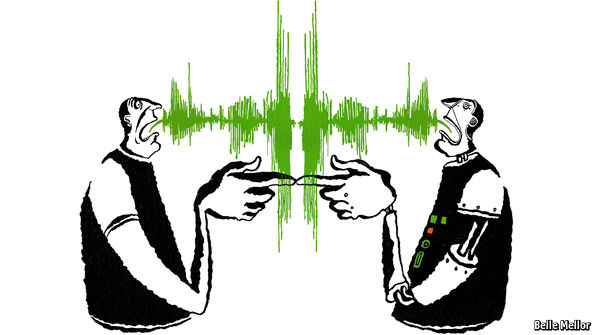Imitating people’s speech patterns precisely could bring trouble

UTTER 160 or so French or English phrases into a phone app developed by CandyVoice, a new Parisian company, and the app’s software will reassemble tiny slices of those sounds to enunciate, in a plausible simulacrum of your own dulcet tones, whatever typed words it is subsequently fed. In effect, the app has cloned your voice. The result still sounds a little synthetic but CandyVoice’s boss, Jean-Luc Crébouw, reckons advances in the firm’s algorithms will render it increasingly natural. Similar software for English and four widely spoken Indian languages, developed under the name of Festvox, by Carnegie Mellon University’s Language Technologies Institute, is also available. And Baidu, a Chinese internet giant, says it has software that needs only 50 sentences to simulate a person’s voice.
Until recently, voice cloning—or voice banking, as it was then known—was a bespoke industry which served those at risk of losing the power of speech to cancer or surgery. Creating a synthetic copy of a voice was a lengthy and pricey process. It meant recording many phrases, each spoken many times, with different emotional emphases and in different contexts (statement, question,…Continue reading
Source: Economist




